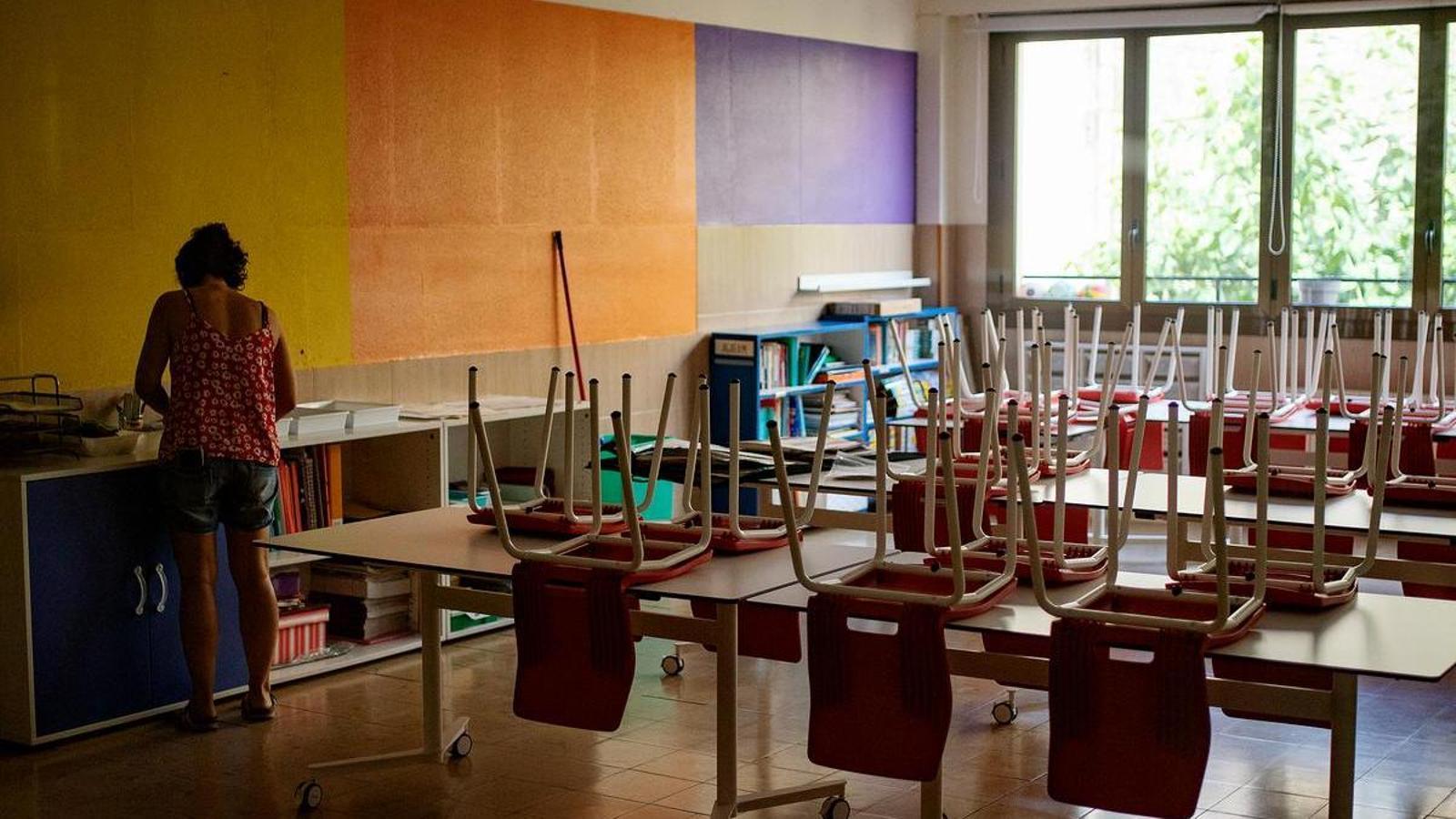Barcelona"Everyone tells us the same thing: they need more resources to serve their students." This is one of the key ideas that the Regional Minister of Education, Esther Niubó, put forward when announcing the details of the new school year, which will begin on Monday, September 8. The main reason is the one they have been warning teachers and families about for some time: the dramatic increase in classroom complexity. This complexity means that this school year, there will be an additional 9,000 students with specific educational support needs (SESE). That is, students who, whether due to learning disabilities, lack of language proficiency, or their socioeconomic status, require more individualized attention to achieve educational success and avoid academic failure.
In fact, according to the latest count of SESE students held by the Ministry of Education, at the end of last school year there were more than 335,000 students with educational support needs between the first and fourth years of compulsory secondary education; This is 9,000 more than the previous year and represents more than a third of the total number of students enrolled in compulsory education until June. Of these, the vast majority (292,380) are socioeconomically vulnerable students or those who have difficulty with inclusion or understanding the language. Many of these children and adolescents are newly arrived students or families of foreign origin. In fact, last year, only until May Catalan schools received 74,328 students enrolled in live classes –they enter the system outside the enrollment period, and are often newly arrived and vulnerable students–. "We find ourselves with classrooms with fewer students, but, on the other hand, with greater complexity," acknowledged Niubó, who also noted that 200 new drop-in classrooms will be launched this year, bringing the total to 1,363 nationwide.
Detection screenings
Beyond the external factors that cause learning difficulties, Minister Niubó wanted to emphasize that this year is intended to be "the year of detection in order to prevent." In this sense, for the first time, during the 2025-2026 academic year, programs will be implemented to detect learning disorders on a general basis. Specifically, screening will begin for language difficulties for all students in first and third grades of primary school. However, although Educació will provide the materials to carry out these screenings, schools will not be required to do so if they do not consider it appropriate. Furthermore, a psychologist will be added to each of the eleven Territorial Education Services, who will be the point of reference in the field of mental health and educational guidance for the schools in their area.
The increase in students with complex situations is the main novelty of a school year that will be marked by the total ban on mobile phones in schools and institutes, but it will also be full of pilot tests that will be implemented in several schools to try to find ways to improve their results. There will be 800 schools running math improvement programs, 538 in the reading comprehension network and workshops, and 91 will run English workshops for vulnerable students. Furthermore, as already announced, a new pilot plan will be launched to strengthen the assessment system, in which inspections will be carried out at schools. This measure seeks to analyze the situation in 250 schools and institutes to support them and find ways to improve educational performance.
Fewer students and daily teacher appointments
As has been the case for years, there will be fewer students in the Catalan education system this year than last year. Specifically, the forecast is that across pre-school, primary, secondary, high school, and vocational training, there will be 1,326,352 students enrolled, 8,493 fewer than last year. This drop in student numbers also contributes to lower teacher-student ratios: in the school year starting Monday, 95% of I3 classes will have a ratio of 20 students or fewer, while in secondary school, classrooms will remain full, although 97% of public secondary classes will have 30 students.
In the 2025-2026 academic year, the Catalan education system will also add 1,671 more teachers than at the beginning of last year and 352 more educational support professionals. Still regarding teachers, as a new development, starting in October, teacher appointments will be made every day of the week to expedite the coverage of replacements needed by schools and institutes during the school year.
In addition, a new call for teaching competitions will be made in March and, As ARA announced, transfer competitions will be held annually.In addition, a pool of teacher trainers will be created, and specialized courses in language and mathematics teaching will be offered.
New centers
School institutes
- IE The Flower of May (Barcelona)
- IE The 30 Steps (Barcelona)
- IE Enric Granados (Barcelona)
- IE Canyelles (Barcelona)
- IE of Viladecans
- IE of Sant Pol de Mar
- IE of Bellver de Cerdanya
Vocational training (VT)
- Institute of Textiles (Canet de Mar)
- Institute of Gastronomy (Barcelona)
- Sant Pau Health Vocational Training Institute (Barcelona)


